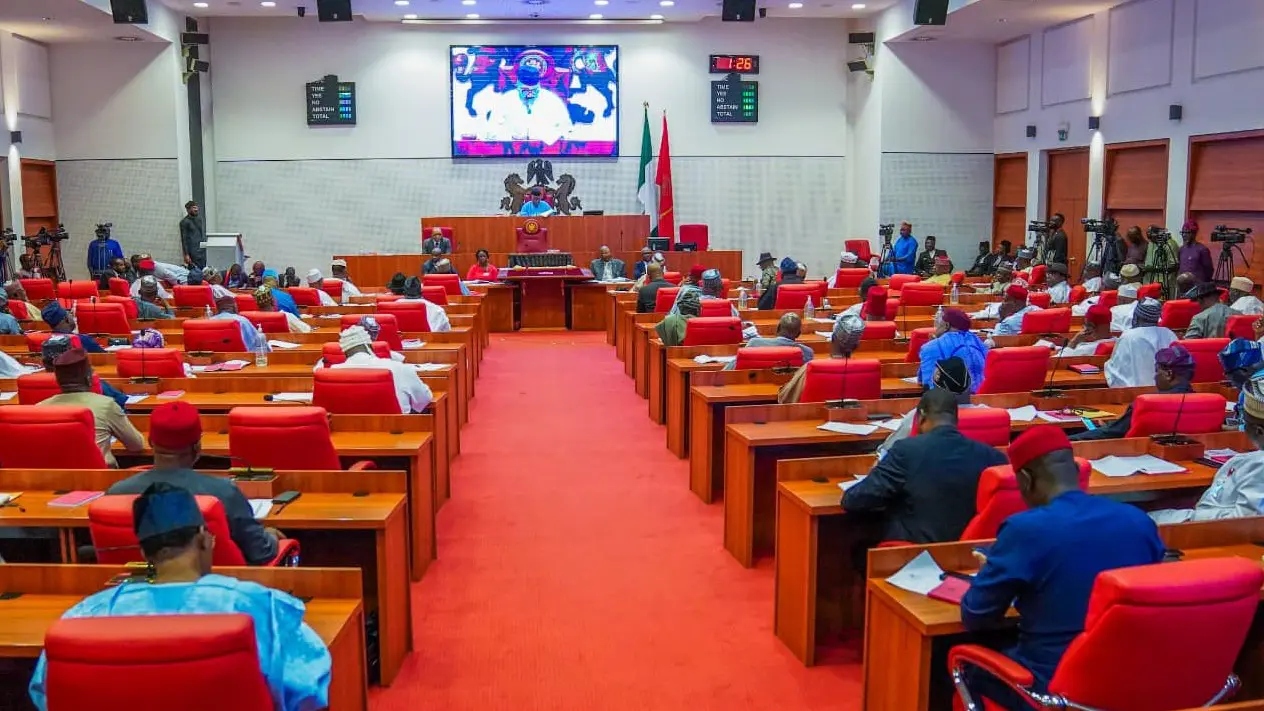Headlines
REAKING: Senate Convenes Emergency Session to Discuss Financial Autonomy for LG

In a rapid response to ongoing discussions about local government financial autonomy, the Senate has called an emergency session to address key issues surrounding the funding and independence of local councils.
The Senate is currently deadlocked over implementing financial autonomy for Nigeria’s 774 Local Government Councils, a right affirmed by the Supreme Court in August.
The issue gained prominence during Wednesday’s session when Senator Tony Nwoye from Anambra North, representing the Labour Party, expressed concerns that state governments were allegedly bypassing the Supreme Court’s ruling by passing conflicting laws through their State Houses of Assembly.
Referencing Senate Standing Rules orders 41 and 51, Nwoye presented a motion highlighting issues with governors allegedly forcing local governments to deposit funds into State/Local Government Joint Accounts—a practice ruled unconstitutional by the Supreme Court. Supported by nine other senators, Nwoye stressed that these actions seriously jeopardize the complete enforcement of local government autonomy.
As Nwoye finished presenting his motion, Senator Adamu Aliero from the PDP, representing Kebbi Central, referenced Section 287 of the 1999 Constitution. This section requires that Supreme Court judgments be enforced nationwide. Aliero urged the Senate to halt further discussions on this issue, emphasizing that the decision made by the Supreme Court should be regarded as final and not subject to extensive debate.
The debate has resulted in confusion among members of the Upper Chamber, as senators are divided on the way forward. Some support implementing stricter measures to enforce the ruling, while others remain cautious about addressing the issue through legislation.
Aliero stated that the Supreme Court’s judgment is enforceable nationwide and emphasized, “There is no need for us to be debating anything related to it here.”
In agreement with Senator Aliero, Akpabio brought up another constitutional matter by directing the Senators’ attention to section 162, subsection 6 of the 1999 Constitution.
Akpabio stated that the section established the State/Local Government Joint Account, which needs to be amended to facilitate the full implementation of the Supreme Court Judgment.
Akpabio mentioned that he believes it’s necessary to make amendments to specific provisions of the constitution regarding local governments’ autonomy.
However, before making a final decision on the motion, the sponsor, Senator Nwoye quickly invoked order 42 of the Senate Standing Rules for a personal explanation regarding the motion. Meanwhile, at that same moment, Senator Abdulrahman Summaila Kawu from NNPP Kano South also raised a similar point of order.
READ ALSO: Wike Claims Fubara is Funding APP’s Campaign in Rivers LG Polls
The simultaneous points of order caused confusion during the session, prompting many senators to consult personally with the Senate President. This ultimately led to an emergency closed-door session at precisely 12:46 p.m.
Remember that in early August this year, the Supreme Court prohibited the 36 state governors from continuing to retain or use funds designated for the country’s 774 Local Government Areas (LGAs).
The highest court declared that governors continuing to receive and withhold funds designated for local government areas in their states is illegal and unconstitutional.
The Supreme Court upheld that the “questionable practice,” ongoing for more than twenty years, clearly violated Section 162 of the amended 1999 Constitution.
In the primary judgment presented by Justice Emmanuel Agim, the supreme court declared that no state House of Assembly possesses the authority to enact laws that could in any way interfere with funds designated for Local Government Areas (LGAs).
Emphasizing that the law requires LGAs to be led by democratically elected officials, the Supreme Court directed that from now on, funds intended for the LGAs must be directly transferred to them from the federation account.
The Supreme Court stated that justice necessitates an evolving interpretation of the law. The court maintains that the federation has the option to either disburse LGA allocations directly to the LGAs or route them through the states.
In this situation, because channeling funds through the states has been ineffective, fairness requires that allocations from the federation account should be paid directly to the LGAs moving forward.
It also declared the appointment of caretaker committees by governors to manage LGA affairs unconstitutional. It asserted that all 36 states are obligated to ensure democratic governance at the local government level.
The judgment followed a lawsuit filed by the Federal Government to obtain financial independence for the local government areas.
More details will be provided soon…
